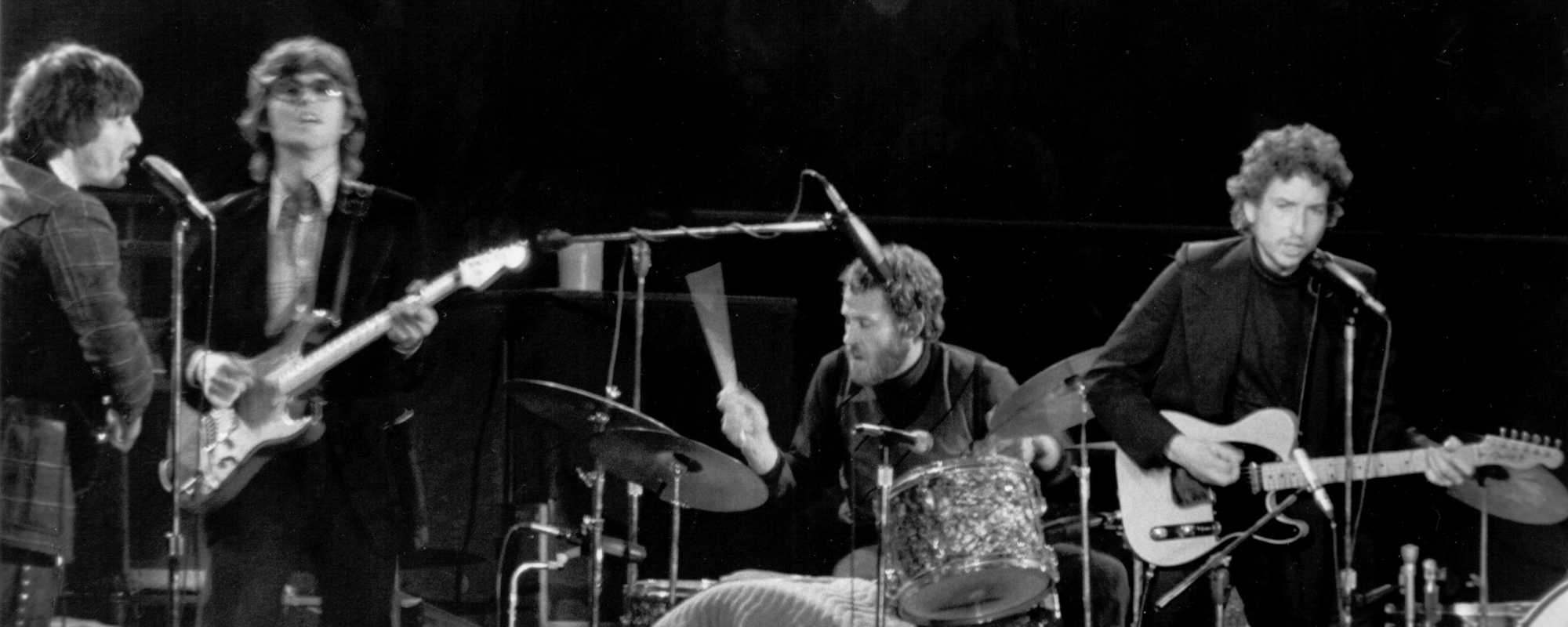When Adam Duritz spoke to American Songwriter about the making of Counting Crows’ new album Butter Miracle: The Complete Sweets, the band’s first full-length collection of original material in 11 years, he sounded more like an excited newcomer hyping his debut than a grizzled veteran of a band of more than 30 years. “I still feel on the verge of being discovered, even as we are way on the other side of the hill,” he says with a laugh.
Videos by American Songwriter
The process of making the record was a little unusual. After releasing the four-song Butter Miracle Suite One, which Duritz wrote while staying at a farm in England in 2021, the band is finally back with five more songs to round out the collection. How it was made, ultimately, doesn’t matter. What matters is that the finished product brims with the qualities that have always set this band apart, from their instrumental chemistry to Duritz’s striking lyrics.
In a wide-ranging interview, Duritz explained to us what took so long, and he also spoke candidly about Counting Crows’ ability to keep things fresh throughout their long, legendary career.

American Songwriter: How did you come to complete this album four years after the first part of it was released?
Adam Duritz: The suite was something I challenged myself to do. It was never meant to be anything but those four songs. I went back to the farm where I wrote the suite, and a year later, I wrote these new songs and thought they went together well. And I decided to make it a full-length record. On the way home, I stopped in London and sang on my friend’s record for the band Gang of Youths. A little while after that, they sent me their record, and it was so good. I realized that the new songs that I’d written weren’t at that level, and they needed some work. So I went back and really honed them.
After I’d done that, I also found that, even though I’d fixed the songs and I thought I had made them great, I kinda didn’t have any confidence in them. I’ve never had that happen to me before. I sat on the songs for two years without sending them to the band. I just couldn’t decide whether they really were any good. And then I wrote “With Love from A to Z,” which I loved. Having finished that, it felt like a perfect accompaniment to these other songs. I went back to look at them, but I still just couldn’t figure it out. So I called up our bassist and drummer, Millard (Powers) and Jim (Bogios), and our guitar player, Immy (David Immergluck), and said, “I need you guys to come to the house. I just can’t figure them out and need to play them with the band.”
The guys came here in my living room, and we demoed the songs one by one, and loved them. We were so excited. We did that over four or five days and said, “We have to go into the studio right away.” We went in two or three weeks later and recorded that half of the record in 11 days.
I think my compositions were a little more ambitious than my ability to play them, and that made it hard. A lot of it was in my head. I’ve never rewritten songs like that. I don’t write a lot of songs, but I usually get them right when I finish them. And then this happened, and it was just weird.
[RELATED: The 11 Best Adam Duritz (Counting Crows) Quotes]
AS: What made the difference when the band took on these songs?
AD: We were so excited. Especially for me because I’ve been sitting on these songs for years, being just so embarrassed and not confident in them. And then, as soon as we got into playing them at my house, it was so clear they were good that we were in the studio in two weeks. We played the songs live in the room. There were overdubs, but it was just very much based on the five of us. We only brought our guitar players Dave (Bryson) and Dan (Vickrey) in later. It started with just a really stripped-down tight unit: bass, drum, guitar, keyboards (played by Charlie Gillingham), and vocal. We did that on the suite, too, just ripped through these songs. They’re very based in what they feel like live.
AS: Many of these songs are about the rock and roll life. Do you feel that you’ve reached a point in your career and your life where you’re better equipped to put the life of being a touring musician in perspective than maybe at a younger stage?
AD: I think on this record, one of the themes is just how much music has meant to me in my life. It didn’t start when I was a touring musician. I started when I was a kid, with my parent’s record collection and then my own records, just my obsession sitting in my room all those years, playing those records, and flipping out, reading every article I could find on bands I love. You can really hear that on “Bobby and the Rat-Kings,” which is about what it’s like to love a band and how it becomes the soundtrack to whatever adventures you’re having in your life. On “Elevator Boots,” it’s very much about being a working musician. That’s the other half of my life. At some point, it stopped being just me listening because I am this dream I had, come to life.
“Spaceman in Tulsa” is about the role art of any kind, but music, especially, can play in the life of someone who’s maybe not like everybody else. Maybe in the town you grew up in, you were an outcast, or you were lonely, or weren’t the cool kid. Maybe there are a lot of traumas that people went through, and a lot of those people became artists, and rock and roll became their salvation. People went through a lot of tragic shit and survived because they found a way to express themselves.

AS: In “With Love from A to Z,” you sing, These words are the essence of me. Has that always been the case for you, where, for anybody looking to know who you truly are, your lyrics are the best place to find it out?
AD: It’s a big part of it. I think that song, in a lot of ways, is an update of “Round Here” in that it’s a statement of where I am in the world right now, where I am in life, both at home and everywhere else at once. “Round Here” has that kind of same scope. I feel like this song was such a powerful summation of where I’m at in life that it enabled me to stop muddling around with the other songs. Because one thing I knew when I finished that song is it was great. No doubts in my mind about the song, like I was having with the others. It made me think I had to figure out what was going on with the other ones because I’d been sitting there willfully not figuring it out, afraid of them not being good. “With Love from A to Z” was so undeniable to me that I had to get off the pot and stop being such a coward. I will always love that song because of that. And it’s also a statement of affection and love about the relationship I’m in that changed my life. There’s just a lot to it.
AS: When you guys debuted, I remember thinking that the kind of music you were making, with these sprawling lyrics and arrangements, was unlike anything else on the scene. If anything, I feel like that might be the case even more now. Do you feel like you and the band have always kind of filled a unique niche in the music scene in that respect?
AD: Yeah, and I think in some way it meant that there was no real genre for us. There wasn’t a home on the radio for us at times that made sense. Even now, I don’t know that we’re like anybody else that way. We weren’t a part of any particular scene. We didn’t really fit in anywhere, but there were ways in which we fit everywhere. As music got really genre-specific in the late ‘90s and early 2000s, I felt like it was almost uncool to be us. In the beginning, we were this unique thing. And then everybody was supposed to be the same.
We’ve never really been interested in repeating where we were. We were always chasing whatever interested us. Even on this record, it’s born out of an idea to write a kind of composition I’d never tried before. It probably felt like it was a bit beyond my skill level, but it turned out.
[RELATED: Behind the Song: “Mr. Jones,” Adam Duritz of Counting Crows]
AS: This record’s ambition is very impressive, especially from a band that could coast on their laurels.
AD: When you have the kind of success we had with August and Everything After, the last thing a record company wants you to do is go find Gil Norton because you like Pixies’ records. And then after that’s a No. 1 record, they don’t want you to get the guys who produced Sparklehorse because you’re interested in doing something quirky and weird. We’ve always just kind of gone where we wanted to go. We were interested in what we were interested in at any given moment, as opposed to chasing some success we’d already had. We were never really looking to make August and Everything After. Which maybe is a mistake as far as sales go, but I’ve never been bored. I still feel really excited about the music we make. I really like it. And I love this record. I know it was really ambitious, and that feels really good to me, whether anybody recognizes it or not.
AS: To what do you attribute the band’s longevity?
AD: We’ve always done things that excited us, and that’s exciting as opposed to things that everybody else thought would be a good idea or would make for a good sale. We demanded a lot of ourselves. We’re just chasing something that’s ours, as opposed to anybody else’s.











Leave a Reply
Only members can comment. Become a member. Already a member? Log in.